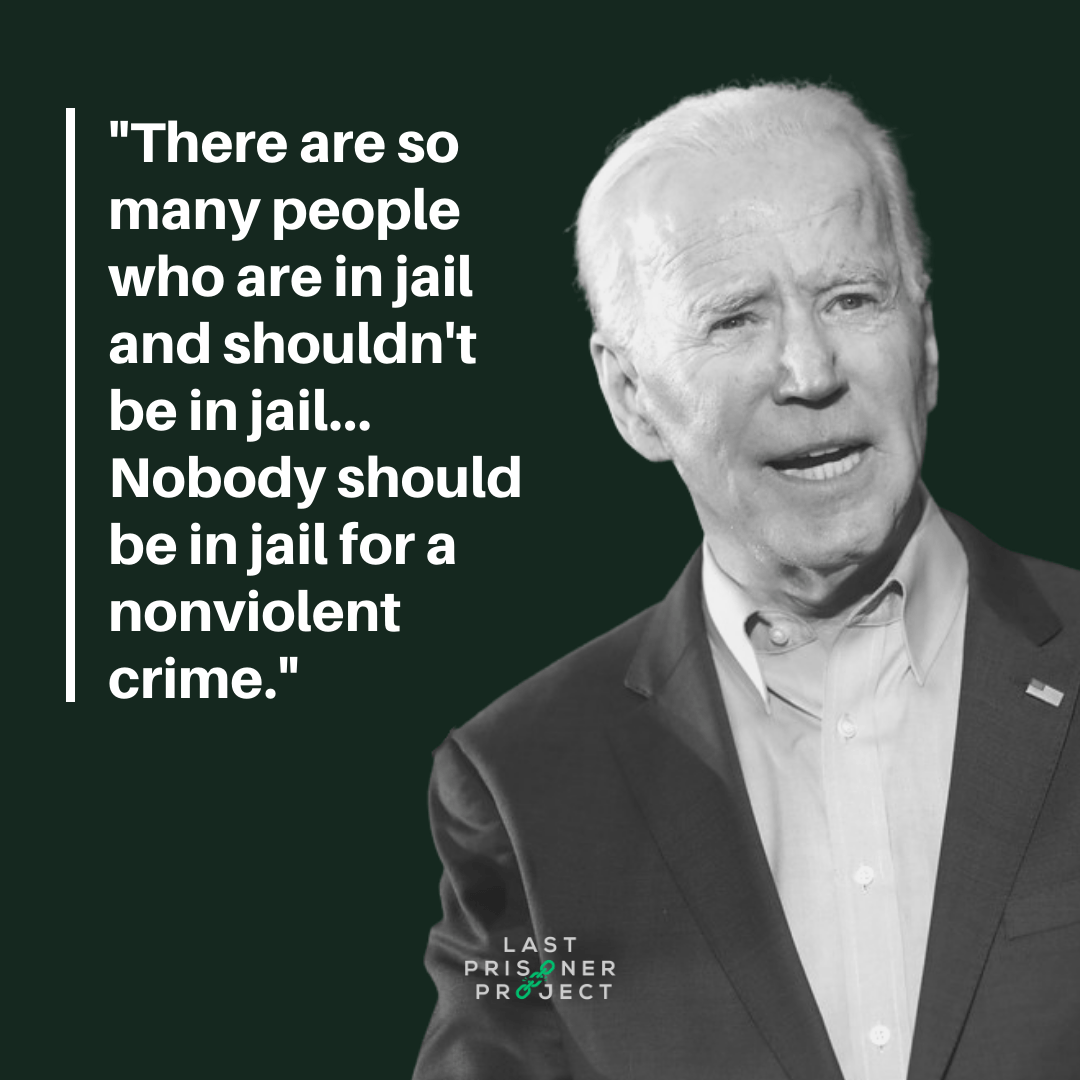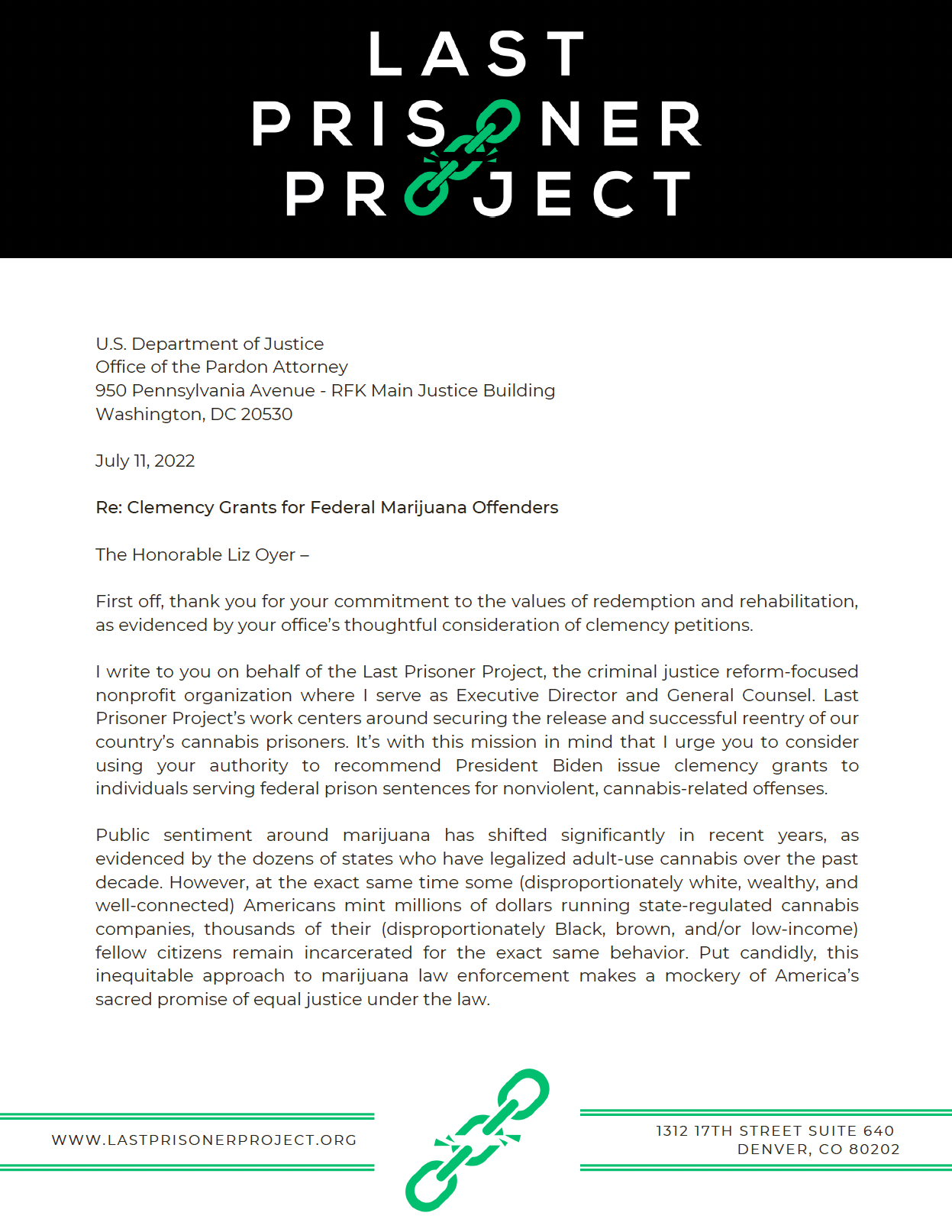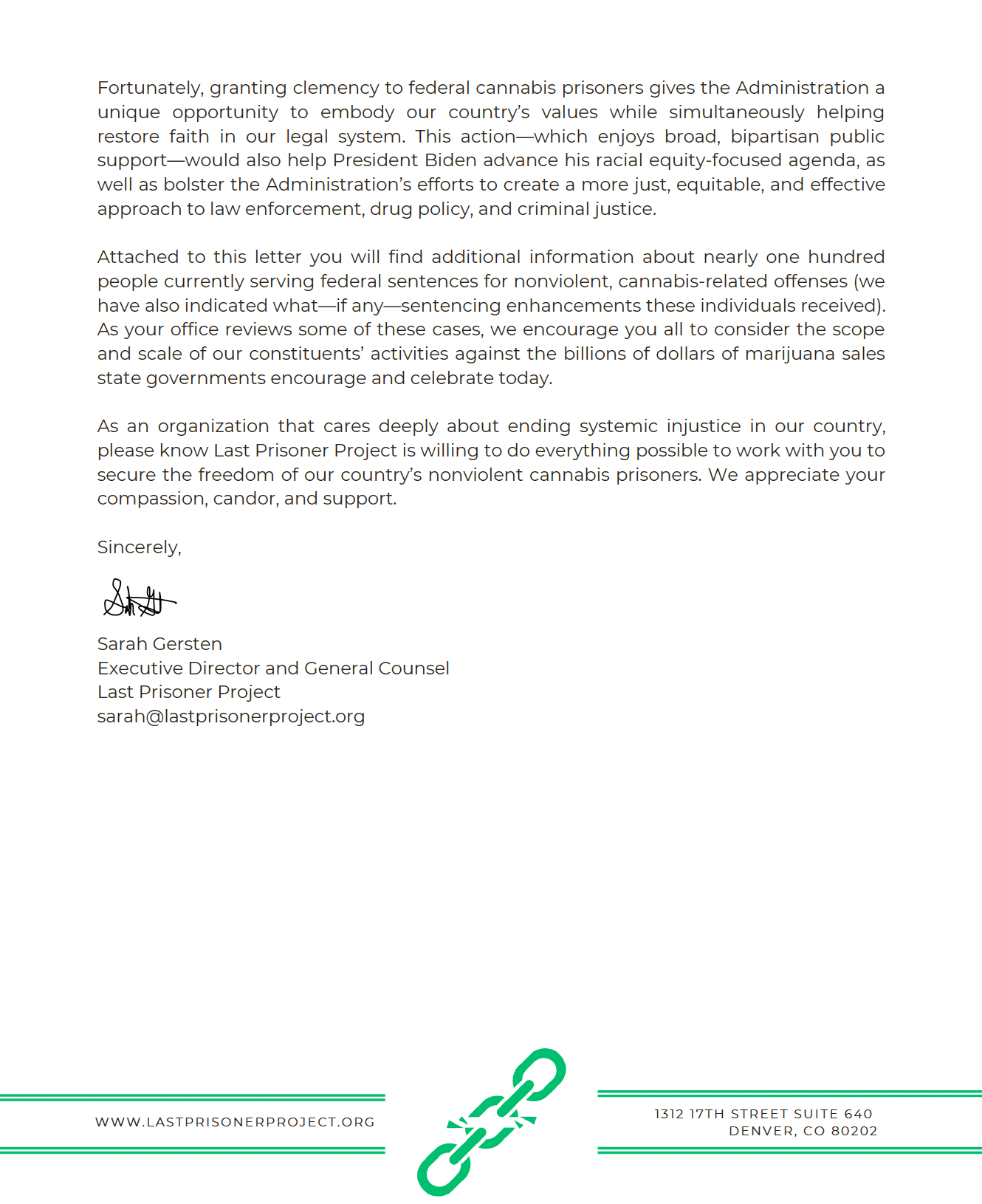Pressure Grows for Biden, Dems to Free Those Imprisoned for Cannabis Before Midterms

President Biden faces mounting pressure from the public, industry advocates, and other branches of government to fulfill his campaign promise of decriminalizing marijuana. He recently reiterated that he is working on that promise saying “I don’t think anyone should be in prison for the use of marijuana.”
Yet there has been little action behind Biden’s words. While he did grant executive clemency to 78 individuals,
only nine of those individuals were currently serving a sentence for marijuana. Not only does this leave thousands of people federally incarcerated for cannabis still languishing behind bars, it falls far short of the mass pardons and record clearances voters were expecting.
The President’s reluctance to free those imprisoned in the U.S. stands in stark
contrast to his willingness to jump through hoops and propose a
prisoner swap for WNBA player Brittney Griner (though Griner pled guilty to hashish oil-related charges in Russia, Biden still maintains she is
wrongfully detained). The backlash from those at home has risen as more people
realize Griner could’ve gotten a similar sentence in the United States as changes in cannabis laws largely
do not provide relief for people who were previously punished under the old laws.
Biden’s executive inaction has spurred Democrats in the House and Senate to push even harder to find legislative solutions to America’s broken cannabis policies. After nearly a year of waiting, Senators Schumer, Booker, and Wyden introduced their revamped
Cannabis Administration and Opportunity Act (CAOA) (and Senator Booker presided over a
hearing related to it last Tuesday). Since then, talks have swirled that legislators may introduce a bill that would pull banking-related provisions from
SAFE and criminal justice-related provisions from
HOPE in order to advance a “Frankenstein” bill this session.
Sen. Schumer, who is acutely aware of the difficult political landscape he faces, knows that if he is to pass any cannabis policy reform, he must act before the midterms. He urged Biden to do the same. In a
recent letter and
hearing to make the pardon process eaiser, Sen. Schumer and his progressive colleagues urged Biden to use his clemency powers as well as deschedule marijuana from the Controlled Substances Act.
While the politics play out, Last Prisoner Project has been continuing to support these broad clemency efforts through our
A Time to Heal campaign, while also pursuing all other possible avenues to secure relief for our federal constituents. Following a meeting with the Office of the Pardon Attorney, LPP has since sent a letter (attached below) to the Honorable Elizabeth Oyer encouraging her to encourage President Biden to grant categorical clemency to all U.S. cannabis prisoner (we also passed along details of over 100 of our eligible constituents.
LPP will continue to hold the Biden Administration accountable to its promise.
After all, we will not rest and we will not stop until the last cannabis prisoner is set free.








